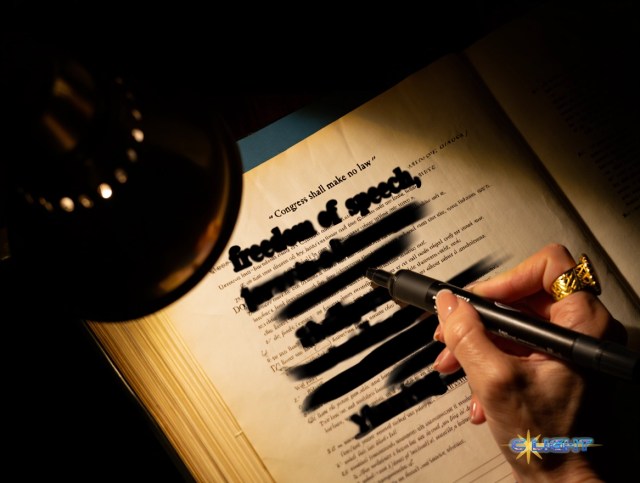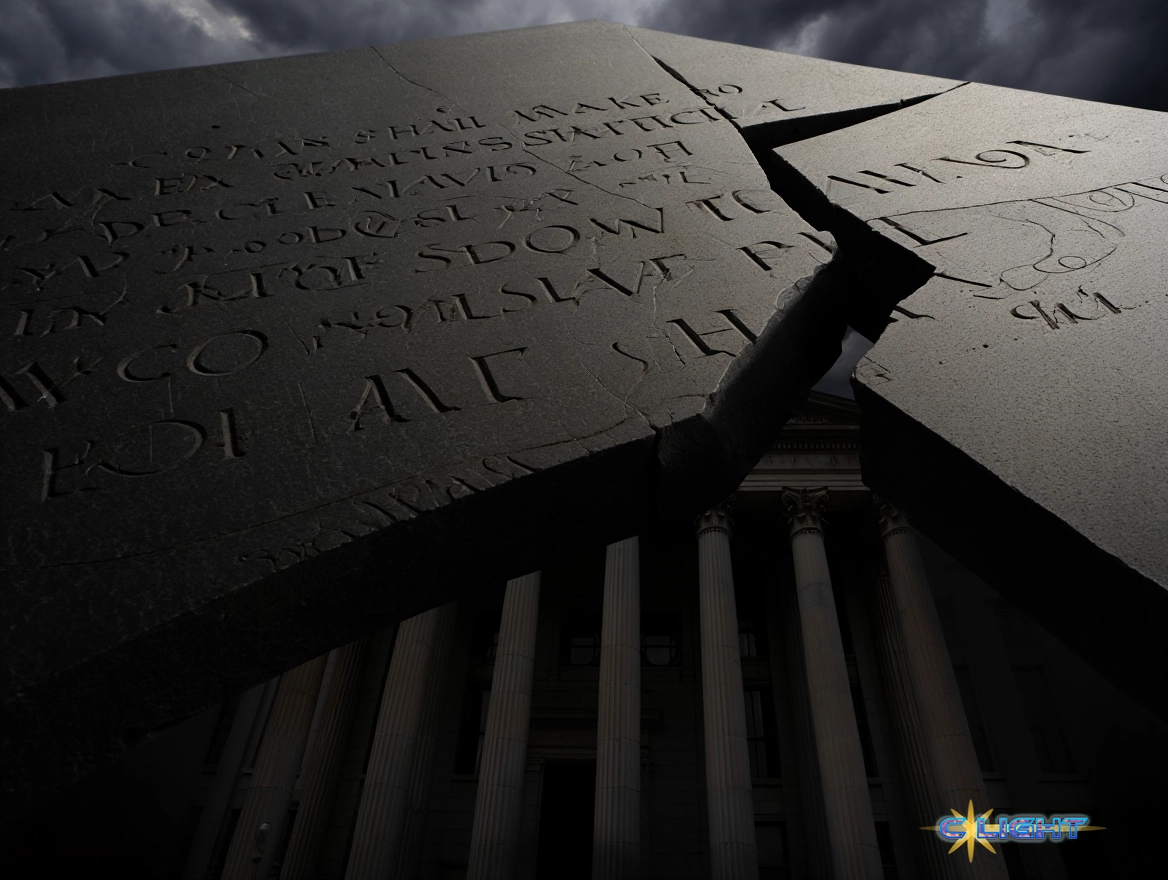6 minutes read time.
In the tumultuous aftermath of a political assassination, a peculiar and perilous phenomenon unfolds: the powerful rush to construct a martyr, sanding away the abrasive complexities of a real person to erect a simplified myth. In the wake of Charlie Kirk’s murder, this process has been jarringly swift. Yet, a more profound and dangerous irony is at play. The very political movement Kirk helped build, a movement that rose to prominence by wielding the First Amendment as both a shield and a sword, is now using his death as a pretext to dismantle the foundational principles of free expression that enabled his entire career.
The opening salvo in this emergent war on speech was fired not from the fringes, but from the apex of the nation’s legal hierarchy. In an interview, Attorney General Pam Bondi made a declaration as constitutionally illiterate as it was chilling: “There’s free speech and then there’s hate speech… We will absolutely target you, go after you, if you are targeting anyone with hate speech.”
This pronouncement immediately ignited a firestorm, not merely from civil libertarians and the political left, but from the ideological heart of the conservative movement itself. Bondi’s rhetoric, which sought to import a subjective, politically charged label into the realm of federal prosecution, was met with derision from a broad spectrum of the right. “Our Attorney General is apparently a moron,” wrote commentator Erick Erickson, articulating a widely held sentiment with characteristic bluntness. Brit Hume, the veteran Fox News analyst, noted simply that Bondi “should know this.”
The criticism cut deeper than mere name-calling. It exposed a profound hypocrisy at the core of the administration’s position. Matt Walsh, a right-wing influencer, highlighted the glaring contradiction, posting on X: “Conservatives have fought for decades for the right to refuse service to anyone. We won that fight. Now Pam Bondi wants to roll it all back for no reason.” The most potent condemnation, however, came from within Kirk’s own organization, Turning Point. Commentator Savanah Hernandez described Bondi’s words as the “most destructive phrase that has ever been uttered,” and demanded her immediate removal. The message was unequivocal: the administration’s stance was not just a legal error, but an ideological betrayal.
This rhetorical overreach by the Attorney General did not occur in a vacuum. It proved to be the public-facing component of a broader, systemic campaign that metastasized from the executive branch into the legislature. House Republicans, echoing the White House’s tone, initiated a multi-pronged effort to punish and silence individuals for their speech. This crusade found its primary target in Rep. Ilhan Omar (D-MN), against whom resolutions of censure and committee removal were swiftly filed for comments that, while critical of Kirk’s political legacy, explicitly condemned his murder.

The legislative assault, however, was not limited to their own colleagues. It expanded into a campaign of what can only be described as state-sanctioned “cancel culture.” Representatives Derrick Van Orden (R-WI), Nancy Mace (R-SC), and Randy Fine (R-FL) launched initiatives to defund institutions employing individuals who expressed views they deemed unacceptable. They established what are effectively informant tip lines, urging the public to report teachers, professors, and city council members for retribution. As Tyler Coward, lead counsel at the Foundation for Individual Rights and Expression (FIRE), aptly termed it, this is “the cancel culture part of the tragedy cycle,” but with a crucial distinction: the party that built its modern identity railing against this phenomenon is now attempting to operationalize it with the full weight of the federal government.
The authoritarian impulse flows directly from the top. Vice President JD Fuxacouch, guest-hosting Kirk’s radio program, urged listeners to “call their employer” to get Kirk’s critics fired. This call for a mass doxing campaign was given its most menacing affirmation by Felonious Punk himself. When asked about Bondi’s constitutionally dubious comments, he turned to ABC News reporter Jonathan Karl and threatened, “We’ll probably go after people like you, because you treat me so unfairly—it’s hate.” In that single, vindictive sentence, a potential policy gaffe was transformed into a stated objective: the weaponization of the state against a free press.
Legal experts have been unambiguous in their assessment. Professor Heidi Kitrosser of Northwestern University warned that Bondi’s vague language was “basically opening the door for taking action against anyone who engages in speech that the president or the Department of Justice or Stephen Miller doesn’t like.” The First Amendment, as Professor Aziz Huq of the University of Chicago noted, exists for the very purpose of preventing “the government from using state power to determine the bounds of acceptable discourse.”
This entire episode would be alarming as an isolated incident. Instead, it is the apotheosis of a broader, systemic trend. As The Hill has documented, this assault is of a piece with the administration’s second-term pattern of behavior: targeting pro-Palestinian student protesters, instituting social media checks for visa applicants, filing multi-billion-dollar lawsuits against news organizations, and signing executive orders to prosecute flag burners in defiance of Supreme Court precedent. As Erick Erickson presciently warned his fellow conservatives, any “hate speech” precedent they create “will be turned on you the moment Democrats take back power.”
The ultimate, tragic irony lies in the personage of Charlie Kirk himself. As David A. Graham of The Atlantic astutely observed, the rush to canonize Kirk has sanded away the rough edges of a man whose entire public career was a testament to the necessity of protecting provocative, and often deeply offensive, speech. This was a man who called George Floyd a “scumbag,” the Civil Rights Act a “mistake,” and Martin Luther King Jr. “awful.” His rise was predicated on his right to enter hostile environments—college campuses—and articulate abrasive ideas. He was a primary beneficiary of the broadest possible interpretation of the First Amendment.

Free speech, Graham notes, is a crucial tool for the counterculture, but it is always a danger to those in power. The MAGA movement has completed its journey from one to the other, and now, rattled by dissent, seeks to pull up the very constitutional ladder it so eagerly climbed.
In the end, the administration and its allies are betraying the legacy of the man they purport to honor. They are rejecting a battle of ideas in favor of censorship by force. It was Kirk himself who reportedly warned, “When people stop talking, that’s when you get violence.” His own political allies, in their quest to avenge him, seem determined to prove him right by forcing his critics to shut up. As we navigate this perilous moment, Professor Kitrosser’s admonition echoes with renewed urgency: we must all remain very vigilant.
Discover more from Clight Morning Analysis
Subscribe to get the latest posts sent to your email.










